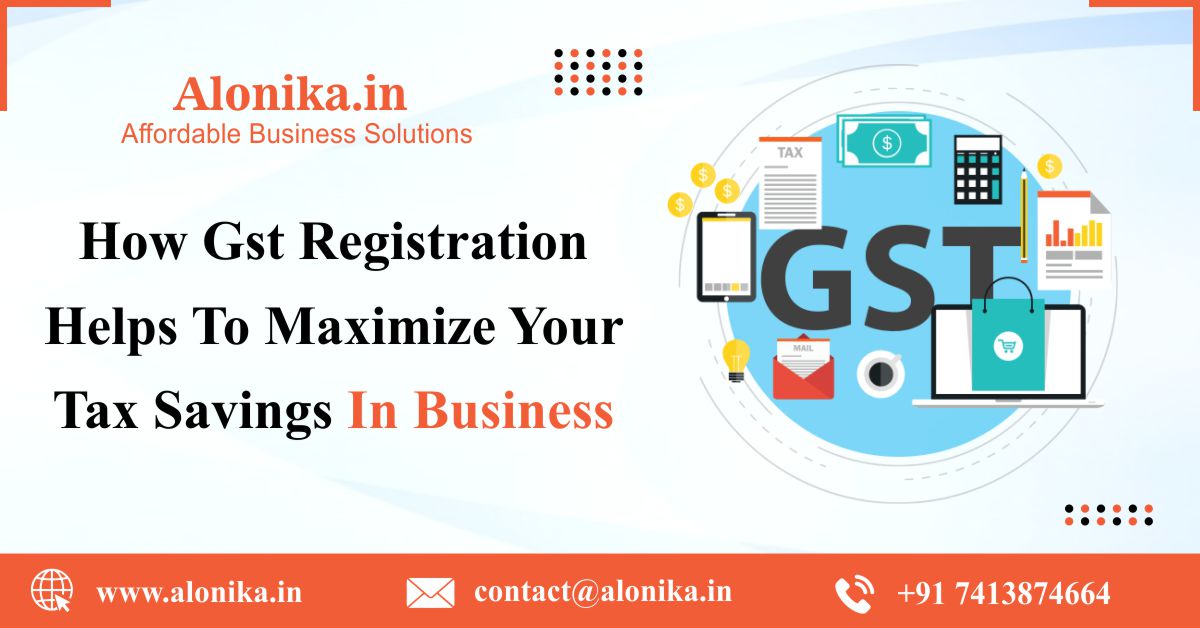Why CFO Account & Services is the Preferred Selection for GST Registration in Singapore
Why CFO Account & Services is the Preferred Selection for GST Registration in Singapore
Blog Article
Navigating the Complexities of GST Enrollment: A Comprehensive Guide for Entrepreneur
Browsing the intricacies of GST enrollment can be a challenging task for numerous company owner, as it entails a myriad of guidelines, guidelines, and processes that should be stuck to. With the ever-evolving landscape of tax obligation laws, guaranteeing conformity and understanding the complexities of GST registration is vital for the smooth operation of any type of service. From identifying eligibility and collecting the needed paperwork to optimizing procedures for optimal effectiveness, this detailed overview intends to offer entrepreneur with the knowledge and devices required to navigate the intricacies of GST registration successfully.
Eligibility for GST Registration
Organization owners must satisfy specific requirements to identify their qualification for GST registration. As a whole, organizations with a yearly turn over surpassing a certain threshold are required to sign up for Product and Solutions Tax Obligation (GST) This threshold varies by country, but it is crucial for business owners to stay educated concerning the specific policies in their jurisdiction. Additionally, businesses included in interstate materials, ecommerce, or the stipulation of certain defined solutions and items might additionally be mandated to sign up for GST, despite their turnover.
Furthermore, services that are registered under any kind of previous tax regimen, such as barrel or service tax, are normally called for to transition to GST registration. Understanding these standards is important for business owners to make sure conformity with the legislation and prevent any type of penalties or legal concerns. It is recommended for entrepreneurs to speak with tax experts or legal experts to examine their qualification for GST registration properly. By adhering to the needed requirements, companies can smoothly navigate the complexities of GST enrollment and run legally within the tax framework.
Files Required for Enrollment
To finish the GST enrollment process, businesses need to collect and submit a comprehensive collection of files. The vital records needed for GST enrollment usually include proof of organization enrollment or consolidation such as the Certificate of Unification, collaboration deed, or any other registration certificate.
Additionally, details papers associated with the nature of the business, such as a list of goods or solutions supplied, HSN codes for products, and cavity codes for services, might be required - Why choose CFO Account & Services for GST registration in Singapore. It is essential for services to ensure that all files submitted are accurate, current, and in the recommended format to stay clear of any hold-ups or issues in the GST enrollment process
Refine of GST Registration
Having put together the requisite documentation, organizations continue to launch the GST enrollment procedure by involving with the online website marked for enrollment. This on the internet site is the Item and Provider Tax Obligation Network (GSTN) portal, which acts as the primary platform for all GST-related activities in India. Upon accessing the site, businesses are required to submit the GST enrollment kind with precise information concerning their organization activities, turnover, and various other pertinent information.
Once the kind is finished and submitted on the portal, the GSTN confirms the information provided by the business. If any disparities are discovered, the applicant might be called for to give extra info or information. Following successful verification, a GST enrollment certificate is issued to the business entity. This certificate includes an one-of-a-kind Item and Provider Tax Recognition Number (GSTIN) that is utilized for all GST-related deals.
It is necessary for organizations to ensure that the information supplied throughout the GST registration process is exact and approximately date to prevent any type of potential concerns or delays in acquiring the GST registration certificate.
Comprehending GST Compliance

Companies require to be familiar with the different GST conformity needs based upon their turnover, nature find of solutions or products, and the states in which they run. It is important to stay upgraded on any kind of adjustments in GST laws and policies to stop any type of non-compliance problems.
Non-compliance with check out this site GST policies can result in significant fines, charges, and also legal consequences. Consequently, companies have to invest time and resources in enlightening themselves and their staff on GST conformity. Seeking expert help from tax advisors or consultants can likewise assist in navigating the complexities of GST conformity and making certain that companies operate within the lawful structure.

Tips for Optimizing Organization Procedures
For boosted efficiency and efficiency in company procedures, tactical planning and structured procedures are vital elements. One suggestion for optimizing business operations is to utilize technology properly.
One more important element is focusing on tasks based upon their significance and due dates. By creating a clear hierarchy of tasks and setting sensible timelines, organizations can ensure that critical tasks are finished in a timely manner. Promoting a society of open interaction and partnership among team participants can lead to increased performance and technology.

Conclusion
Finally, browsing the intricacies of GST registration needs a clear understanding of eligibility criteria, needed files, registration procedures, and compliance demands. By sticking to these standards and optimizing business procedures, local business owner can guarantee smooth procedures and conformity with the GST laws. It is important for businesses to pop over to this site remain educated and updated on GST guidelines to stay clear of any type of charges or lawful problems.
The key documents needed for GST registration normally include proof of business registration or incorporation such as the Certificate of Consolidation, partnership action, or any kind of various other registration certificate.Having actually constructed the requisite documentation, companies proceed to initiate the GST registration procedure by involving with the online website designated for registration. Upon accessing the site, companies are called for to fill up out the GST registration kind with exact information concerning their organization tasks, turnover, and various other appropriate details.
In order to maintain adherence to GST policies and avoid penalties, businesses need to prioritize recognizing GST conformity. By adhering to these standards and enhancing service procedures, organization proprietors can ensure smooth operations and conformity with the GST regulations.
Report this page